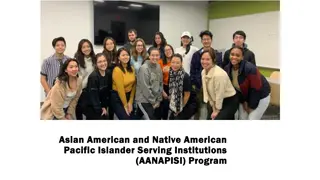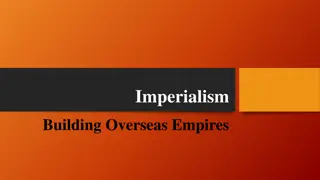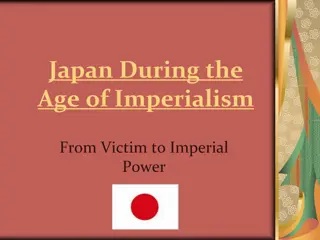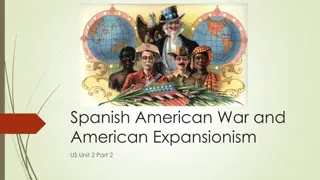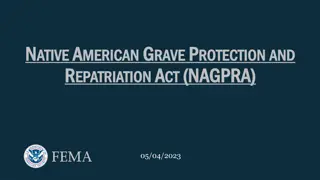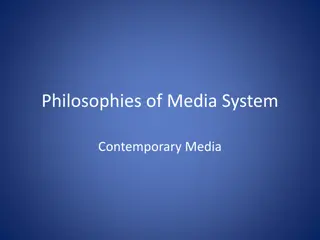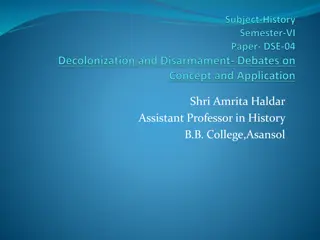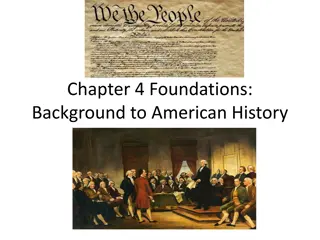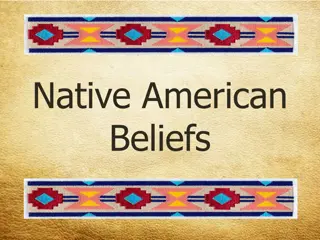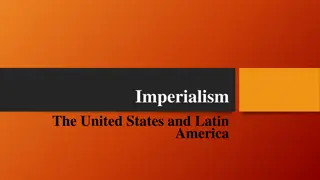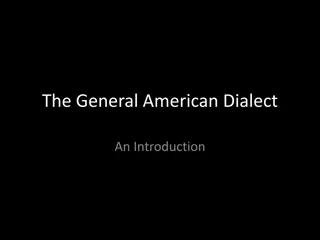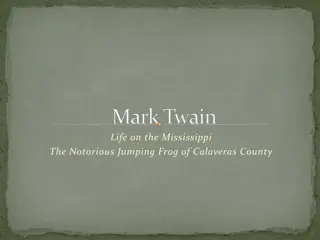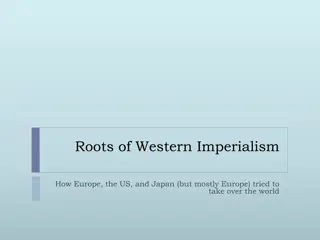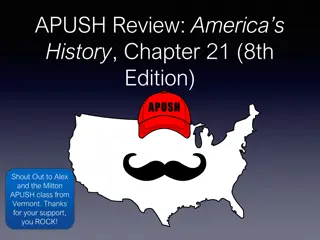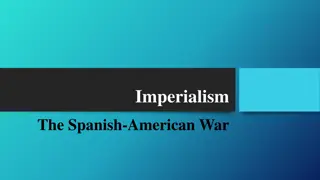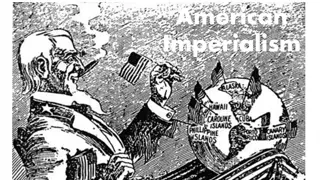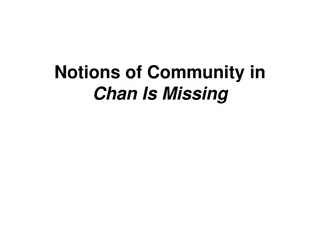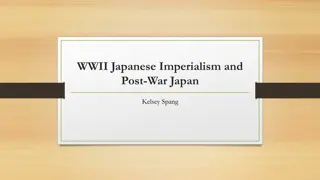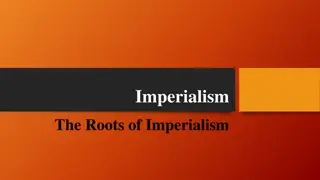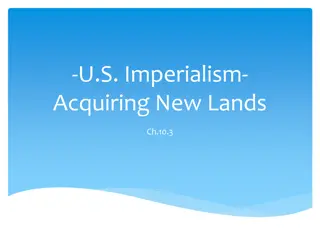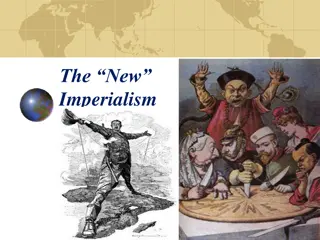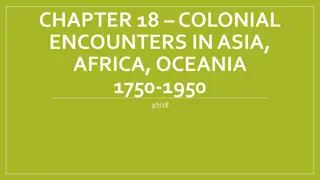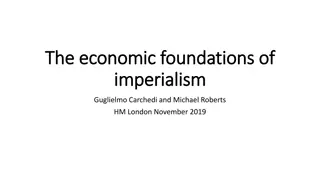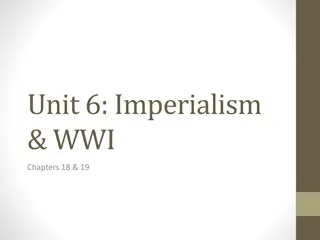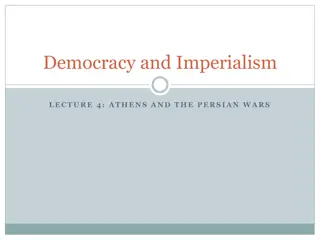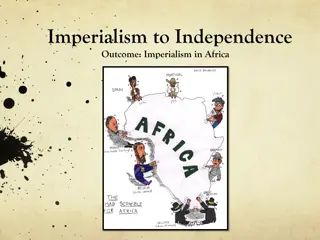Liberty & The Age of Enlightenment The American Battlefield Trust
The Age of Enlightenment, with its emphasis on natural law, liberty, progress, and constitutional government, greatly influenced American thinking and the Revolutionary War. Key figures like John Locke and Sir William Blackstone contributed ideas of social contract and law that shaped American gover
2 views • 15 slides
Zora Neale Hurston: African-American Writer of the Harlem Renaissance
Zora Neale Hurston, born in Notasulga, Alabama, in 1891, was a prominent African-American writer known for her works reflecting the African-American culture and folklore. Growing up in Eatonville, Florida, and later studying at Barnard College, she stood out among her contemporaries for her portraya
2 views • 4 slides
Overview of AANAPISI Program in the United States
The Asian American and Native American Pacific Islander Serving Institutions (AANAPISI) Program aims to support institutions with a minimum of 10% Asian American and Native American Pacific Islander undergraduate enrollment. Currently, there are 54 funded AANAPISI institutions across 16 states and t
0 views • 13 slides
Evolution of American English Vocabulary and Language Features
American English exhibits arachaic features and early changes in vocabulary due to colonial influences and the distinct political and administrative system. The language has preserved old-fashioned elements from the seventeenth and eighteenth centuries, while also incorporating new words inspired by
0 views • 5 slides
European Imperialism in the Late 19th Century
European nations in the late 1800s pursued imperialism to expand their empires for economic, political, and social reasons. Motives included economic interests, political and military ambitions, and the ideology of Social Darwinism. The Industrial Revolution fueled the need for resources and markets
1 views • 14 slides
Japan's Transformation During the Age of Imperialism
Japan's journey during the Age of Imperialism saw it transition from isolationism to becoming an imperial power. From strict order under the Tokugawa shoguns to the Meiji Era's rapid modernization, Japan adopted Western influences to reform and militarize. The Treaty of Kanagawa in 1854 marked the e
1 views • 20 slides
Examining State-Level and Dyadic Explanations for War in Global Politics
Understanding the reasons why certain states are more war-prone than others involves exploring factors such as economy, internal opposition, and political systems. Marxist explanations argue that capitalist economies are more prone to war due to issues like overproduction, wealth inequality, and imp
0 views • 17 slides
Spanish-American War and American Expansionism: A Look Back in History
Explore the causes and impacts of the Spanish-American War, including the influence of Yellow Journalism, nationalism, and imperialism on American expansionism during the late 1800s. Learn about key figures like Theodore Roosevelt and the Rough Riders, and the significance of policies like the Monro
0 views • 25 slides
Cultural Awareness for Drug Courts Working with Native American Participants
Understanding the cultural nuances of Native American communities is crucial for Drug Courts collaborating with Tribal Healing to Wellness Courts. This involves acknowledging tribal sovereignty, regional and cultural differences, customs, spirituality, and communication styles unique to American Ind
0 views • 22 slides
Native American Repatriation and NAGPRA Overview
The Native American Graves Protection and Repatriation Act (NAGPRA) enacted since November 1990 establishes ownership of cultural items excavated on Federal or Tribal land. It requires returning such items to Native American descendants and affiliated tribes. The Act also criminalizes trafficking in
1 views • 8 slides
Understanding Media Imperialism and Cultural Influence
Explore the concepts of cultural imperialism, media imperialism, and theories of communication in contemporary media systems. Cultural imperialism involves the influence of powerful cultures on less dominant ones, impacting cultural identity. Media imperialism refers to the one-way flow of informati
0 views • 12 slides
Understanding Colonialism and Imperialism in Modern History
The discussion revolves around the impact of colonialism and imperialism on international relations, focusing on the historical context, economic consequences, and nationalist movements against colonial powers. Highlighting key players such as Great Britain, France, and Germany during the 19th centu
2 views • 14 slides
American Revolutionary Era: Key Events and Figures
The American Revolutionary Era marked by the formation of the Constitution, Washington's militia, key figures like Jonathan Trumbull and John Peter Muhlenberg, the emergence of American culture, the Articles of Confederation, and calls for a stronger government. This period saw a shift towards a mor
0 views • 17 slides
Orientalism and Imaginative Imperialism in the Arabian Nights
This content discusses the intertwining of Orientalism, imperialism, and literature in works like "A Thousand and One Nights" (The Arabian Nights). It explores how intellectual and cultural energies influenced the imperialist perspective and translation of these texts, revealing deeper insights into
0 views • 8 slides
Exploring Native American Beliefs and Spiritual Practices
Delve into the rich tapestry of Native American beliefs, traditions, and spiritual practices, including their diverse worldviews, sacred connections to nature, and unique cultural expressions. Discover the origins of terms like "Indian" and the vast linguistic diversity among different Nations. Cont
3 views • 13 slides
Washington Irving: Father of American Fiction and Pioneer of American Romanticism
Washington Irving, an influential American author of the early 19th century, is revered as the Father of American fiction. Known for iconic works like "The Legend of Sleepy Hollow" and "Rip Van Winkle," Irving played a crucial role in establishing American literature as an independent art form. His
1 views • 14 slides
United States Imperialism in Latin America
United States' involvement in Latin America, particularly in Puerto Rico and Cuba, post-Spanish-American War, showcased a shift towards imperialism. Policies such as the Foraker Act and the Platt Amendment highlighted American efforts to exert influence in the region, leading to mixed reactions from
0 views • 25 slides
Overview of the General American Dialect
The General American Dialect, also known as GenAm, is a widely preferred dialect of English characterized by minor differences in pronunciation compared to regional American accents. It is distinct from Southern, Midwestern, and Northeastern accents and is one of the two global English dialects alon
0 views • 13 slides
Mark Twain's Humorous Tales and Regionalism in American Literature
Mark Twain, a master of humor and regionalism, depicted American culture in a distinctive way through his works such as "The Notorious Jumping Frog of Calaveras County" and "Life on the Mississippi." His stories showcase exaggerated characters, humorous situations, and unique dialects, reflecting th
0 views • 8 slides
Unveiling the Roots of Western Imperialism: Europe's Quest for Global Domination
Exploring the origins and impacts of Western imperialism by examining how Europe, alongside the US and Japan, sought to exert control over various regions, particularly focusing on Africa. The process of colonization, the motivations behind imperialism, and the consequences for the colonized nations
0 views • 13 slides
American History Curriculum for Grade 11 - Semester 1
This American history curriculum for Grade 11 Semester 1 covers key topics such as the Declaration of Independence, American Revolution, industrialization, urbanization, immigration, imperialism, and the United States' emergence as a world power. Students will examine diverse aspects of American his
0 views • 11 slides
American Imperialism in the Late 19th Century
Perception of manifest destiny, economic motives, and racial theories drove American expansionism in the 1890s, leading to overseas markets, acquisitions after the Spanish-American War, and debates over imperialism. Key figures, events, and ideologies shaped America's rise as a global power, includi
0 views • 13 slides
Unit Assessment Review: U.S. Imperialism History Lesson
Review session for upcoming history unit assessment on U.S. Imperialism. Topics covered include key events such as the Philippines under American control, reasons for Mark Twain's anti-Imperialist stance, factors driving American foreign policy towards imperialism, the case of Hawaii's Queen Liliuok
0 views • 15 slides
Causes of the Spanish-American War: Imperialism, Cuba, and Yellow Journalism
The Spanish-American War was fueled by imperialism, particularly the desire for colonies, as well as the unrest in Cuba against Spanish rule. American economic interests in Cuba, coupled with yellow journalism's sensationalized reporting, further escalated tensions leading to the conflict.
0 views • 25 slides
Exploration of American Imperialism Through Historical Events
American imperialism, characterized by extending control over weaker regions for economic and political gain, is exemplified through events like Hawaii's annexation and China's Open Door Policy. The impacts of imperialism on native populations, such as Hawaiians and the Chinese, raise questions abou
0 views • 13 slides
Democracy and Imperialism: Origins and Legacy of Classical Athens
The module explores the origins, nature, and legacy of democracy in Classical Athens (508-322 BC), shedding light on the political structures, principles, and impact of Athenian democracy. Topics range from the supreme authority of the Assembly to the accountability of magistrates, providing insight
0 views • 16 slides
Exploring Asian American Identity Through "Chan Is Missing" by Wayne Wang
Chan Is Missing" (1982) directed by Wayne Wang is a groundbreaking Asian American independent feature film that delves into themes of Asian American identity, hyphenated identity, assimilation, and hybridity. The film, shot on a shoestring budget in San Francisco's Chinatown, showcases the community
0 views • 26 slides
American Imperialism in the Late 19th Century
The late 1880s and 1890s saw the United States embroiled in near-wars and diplomatic crises due to American expansionism. This included the annexation of Hawaii despite Queen Liliuokalani's opposition, and the debate over acquiring the Philippines for economic interests. Anti-imperialists argued aga
0 views • 5 slides
WWII Japanese Imperialism and Post-War Japan
Explore the historical narrative of WWII Japanese imperialism, the factors leading to Japanese control of Pan-Asia, interference from the West, rational for Pearl Harbor, and the aftermath including the fall of Japan and the devastating effects of the atomic bombs on Hiroshima and Nagasaki.
0 views • 17 slides
Influence of American Culture on American Christianity: A Critical Analysis
This content explores the relationship between American culture and American Christianity, discussing how religion reflects the cultural values of individualism, optimism, and the concept of a blessed nation. It delves into the concept of Biblical individualism, the influence of prosperity gospel, a
1 views • 7 slides
Understanding the Roots and Causes of Imperialism
The roots of imperialism trace back to the late 19th century when the U.S. transitioned to a major global player, acquiring territories and expanding influence beyond its borders. Economic benefits, such as access to raw materials and gaining a competitive edge, drove nations towards imperialism. Th
0 views • 16 slides
Chinese Nationalist Revolution: Prelude to Internal Tensions and Imperialism Redux
Prelude to the Chinese Nationalist Revolution explores the backdrop of internal tensions and Imperialism in China from 1895 to the early 1900s. The period witnessed a series of revolts against Manchu authority, including the Taiping Rebellion and self-strengthening efforts to adopt Western technolog
0 views • 30 slides
U.S. Imperialism: Acquiring New Lands and Foreign Influence
Explore the impact of U.S. imperialism through the acquisition of territories such as Puerto Rico and Cuba following the Spanish-American War. Discover the control exerted by the U.S. over these regions and how it influenced local governance. Delve into U.S. economic interests in Cuba and foreign in
0 views • 9 slides
American Literature Through the Ages
Explore the rich tapestry of American literature covering American Indian culture, New England Puritanism, the 18th century American Enlightenment, and the American Renaissance. Discover the oral traditions of American Indian tribes, the puritanical values of New England, the democratic origins of A
0 views • 17 slides
The New Imperialism - Historical Overview of European Colonization
Explore the era of the New Imperialism through descriptions of North Africa, Egypt, Belgian Congo, and American missionary accounts. Learn about the impact of imperialism on various territories and the atrocities committed in the pursuit of resources and control.
0 views • 27 slides
Global Interactions and Imperialism in the 18th and 19th Centuries
This content covers colonial encounters in Asia, Africa, and Oceania from 1750 to 1950, focusing on the impact of European imperialism. It delves into the economic, political, and social dynamics of this period, highlighting factors such as linguistic separation, social Darwinism, and the consequenc
0 views • 11 slides
Economic Foundations of Imperialism: Exploitation and Value Transfer
Imperialism primarily functions as an economic mechanism for exploiting value rather than seeking political dominance. The transfer of value occurs through mechanisms like unequal exchange, global value chain flows, and capital flows, leading to the long-term appropriation of value by imperialist na
0 views • 28 slides
United States Foreign Policy Evolution from Imperialism to World War I
Explore the United States' foreign policy evolution from Imperialism to World War I, including the Open Door Policy, Dollar Diplomacy, and involvement in the Spanish-American War. Learn about the military actions in acquiring territories such as Puerto Rico, Guam, Philippines, and Hawaii. Delve into
0 views • 8 slides
The Impact of Athens and the Persian Wars on Democracy and Imperialism
The lecture delves into the historical events surrounding Athens and the Persian Wars, highlighting key milestones such as the expulsion of Hippias with Spartan help, Cleisthenes' reforms, and the rise of Archaic Greek imperialism in Athens and Sparta. Herodotus' perspective on the Persian Wars and
0 views • 21 slides
The Age of Imperialism in Africa: From Imperialism to Independence
The Age of Imperialism in Africa delves into the historical background of European domination, exploring factors such as European motives, societal impact, and the spread of Social Darwinism. It covers the transition from African trade in the 15th to 17th centuries to the eventual independence movem
0 views • 18 slides


